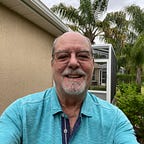Hello Quantum,
Wheeler's delayed choice experiment was a thought experiment, not a real experiment. I know others have tried to perform the experiment. Right now, I have gotten tired trying to understand what they did. The wiki reference you linked needs work and references. But, regardless of that, your comments are very well taken.
I think that the photon is always a wave. I don't understand why people think that the absorption of the wave is collapse of the wave function. It is an interaction with another wave function that is very well described in QM. The same is true for an electron interacting with an atom. I think the key element of the experiment that I wrote about is that, as far as I know, it is the first experiment that demonstrated that cause and effect is not fundmental to Physics.
But, regarding the photons coming from large distances in the Universe, yes they are in superposition, and they behave as waves behave. They travel through all the possible paths, just like any other quantum particle. Until the photon is absorbed, it is a mixture of many waves that were part of many photons. I have read about experiments that showed that the detected photon has elements of several photons. I don't remember where I found that, so I can't prove it at this time. Maybe I will write about that some time.
I agree with the fact that in the photon's frame of reference, the moment of emission is the same as the moment of absorption. We have difficulty converting that to our frame of reference. The Transactional Interpretation of QM is the closest thing I have seen to doing that conversion that is consistent with the formal mathematics of QM. I don't know if it is correct because I am not that good at doing QM calculations.
But, thanks for your thoughtful response to my article. I love your writings too.
Your comparison of the delayed choice experiments to the Case A, Case B, and Indefinite order is very appropriate.
